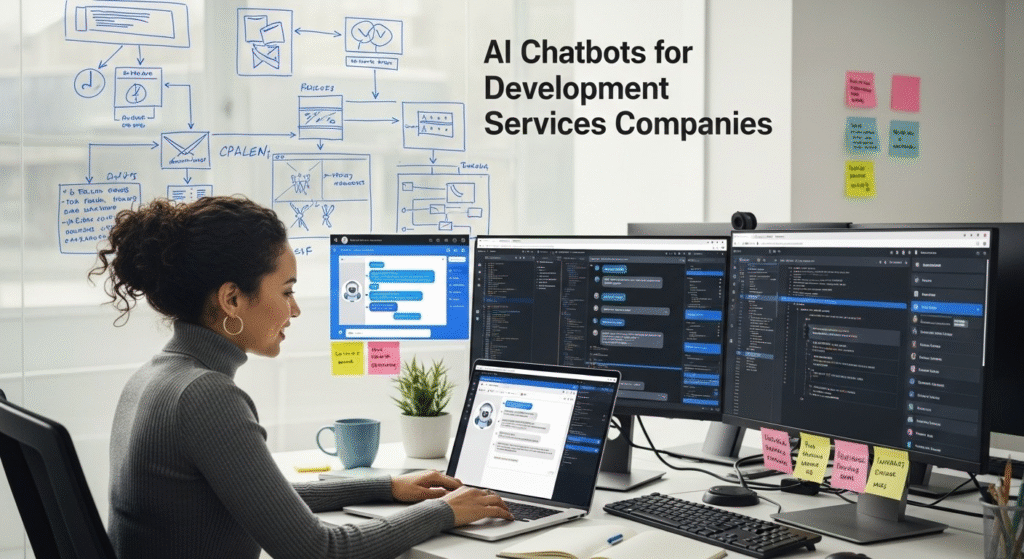
In the fast-moving world of software and development service companies, efficiency, precision, and depth of technical knowledge matter. Clients expect fast responses, accurate information, and seamless collaboration. An AI chatbot built with developer-friendly features can help meet those needs by automating client onboarding, speeding up support, clarifying specification questions, or even helping with internal workflows. Below are six of the best AI chatbots for development services companies, each with strengths that match different use-cases.
1. Rasa
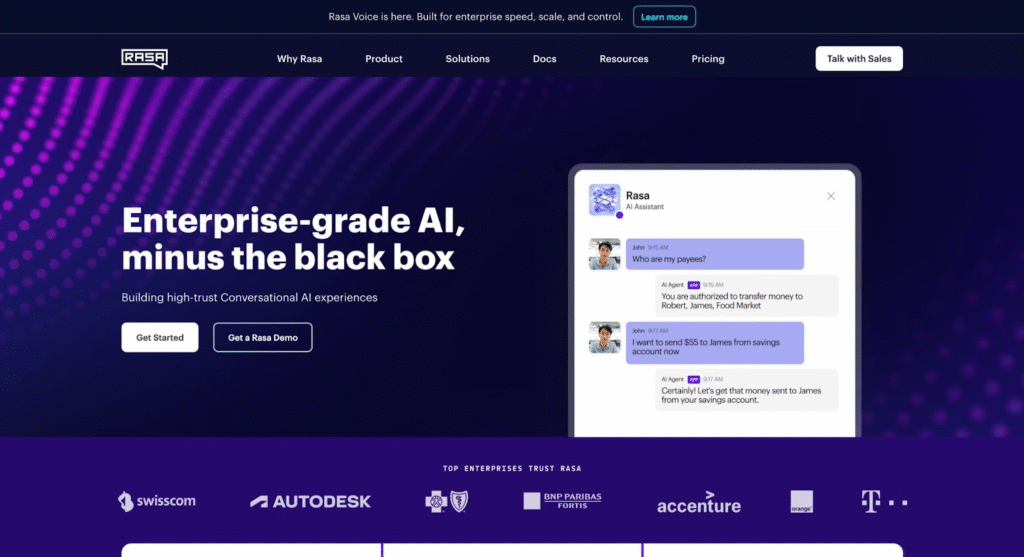
Rasa is often the first choice for development firms that need full control. Its open-source framework gives developers the flexibility to craft conversation flows in exacting detail.
- Core strengths: Rasa’s natural language understanding (NLU) component lets the chatbot interpret intent and entities with precision; dialogue management allows handling multi-turn conversations, maintaining context across back-and-forth exchanges.
- Why it works for development services: Because development service companies often have technical, domain-specific queries (code snippets, API behaviors, bug reports, etc.), Rasa’s customizability (you can add your own training data, fine-tune pipelines, even host on-premise) is a big plus. It supports integrations with messaging platforms, voice, and custom systems.
2. Google Dialogflow CX
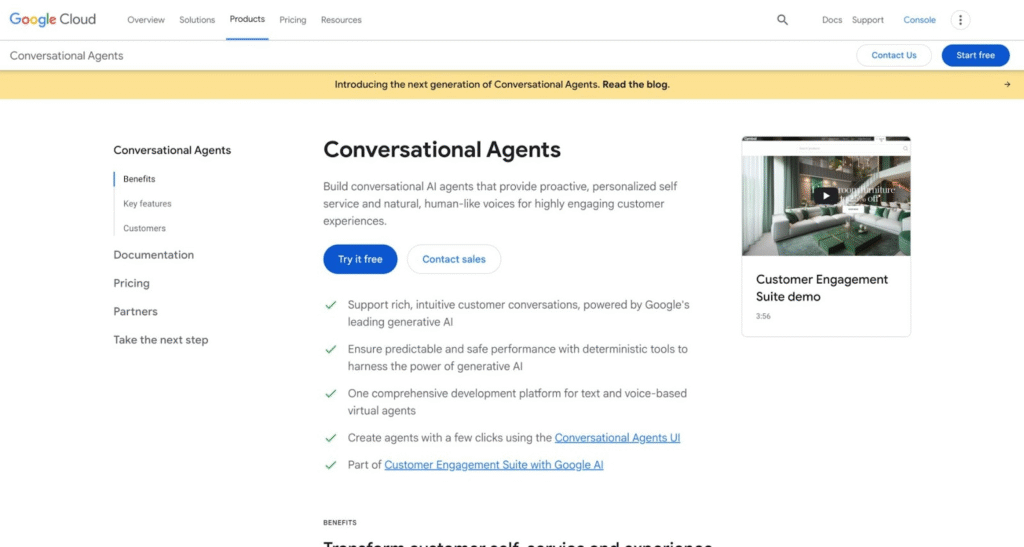
For companies serving large clients with complex requirements and many conversational flows, Dialogflow CX offers tools built for scale.
- Core strengths: Dialogflow CX supports visual flow builders, built-in versioning of flows, session parameters that persist through conversations, and strong error-handling features. It handles multilingual agents, large numbers of intents, and can integrate with voice channels as well as chat.
- Why it works for development services: Often projects involve many modules or features (authentication, integration, deployment, support). Dialogflow CX helps organize those modules into manageable flows. It makes it easier for teams (developers, project managers, support) to collaborate on the design of conversational agents that align with complex business logic.
3. Botpress
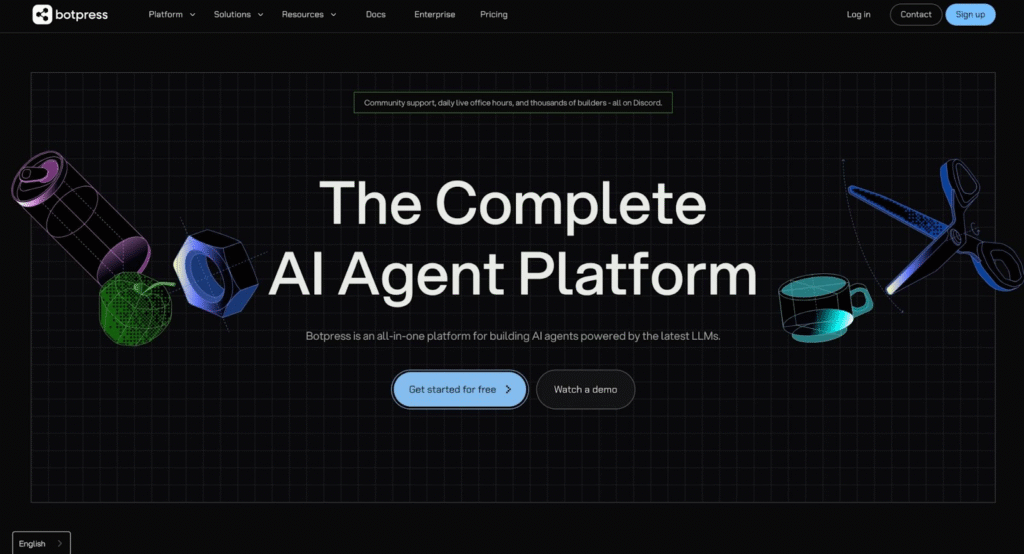
Botpress is a standout when developerism matters: when you want a strong combination of visual tools and the ability to drop down into code.
- Core strengths: Rich visual flow builder paired with text-/voice-based channels, ability to integrate with existing APIs, databases; stateful conversations (memory/context), multi-channel deployments. Also strong analytics and ability to extend with custom code.
- Why it works for development services: Dev service firms often need custom logic (deploy hooks, version control, CI/CD status, QA feedback) Botpress allows executing JS or custom actions in workflows. Also useful for internal tools: e.g. internal developer assistance, knowledge-base query, issue tracking.
4. ManyChat
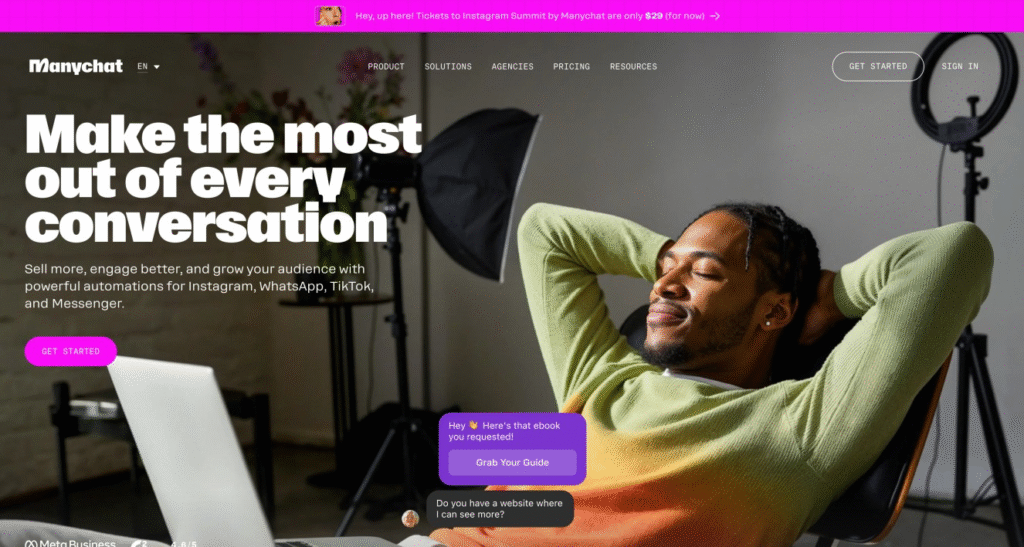
Sometimes speed and agility are just as important as precision. For firms that want to deploy quickly, prototype client engagement bots, or support marketing + client communications without full dev cycles, platforms like WotNot or ManyChat offer drag-and-drop/U/Flow builders.
- Core strengths: No-code builders, ready integrations, multi-channel support (web widget, messaging apps), easy template flows. Good for lead capture, onboarding sequences, FAQs.
- Why it works for development services: Smaller dev shops, or those doing services + consulting + sales, can use these tools to build client-facing flows (initial qualification, collecting specs) without full infrastructure. They reduce overhead, though with less customizability.
5. Custom Chatbot Builders (e.g. BotsCrew, Yellow AI)
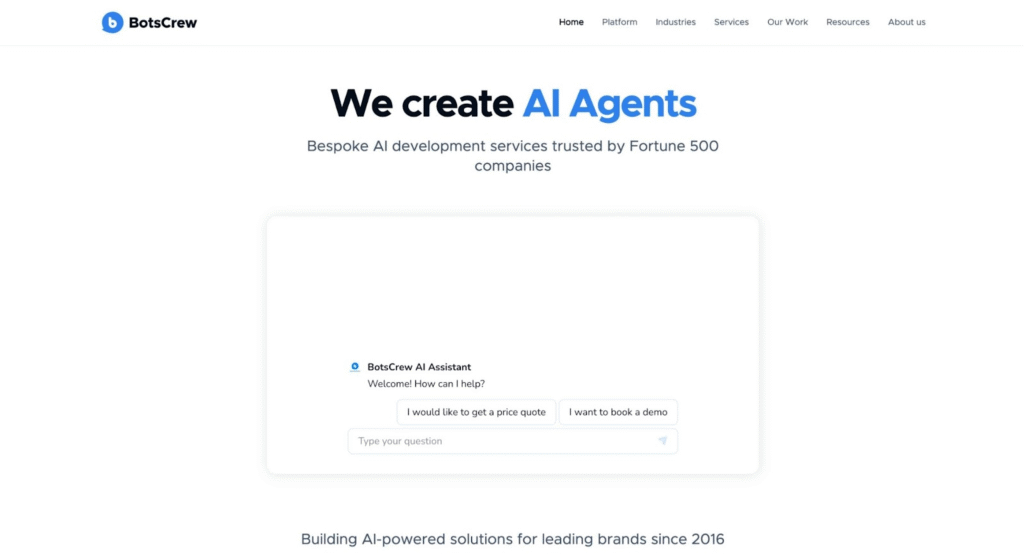
When a company needs bots tailored for highly specific workflows such as support of technical products, compliance, multi-language support, or niche protocols, custom builders or specialized platforms often deliver more value.
- Core strengths: These platforms often support deep integrations, multilingual capabilities, custom UX, support of voice + chat, long term maintenance. BotsCrew is known for conversational UX; Yellow.ai offers enterprise grade automation with strong NLP/voice support.
- Why it works for development services: Development companies often serve sophisticated clients. They may need bots that understand technical documents, code, APIs, legacy systems, these require more than generic templates. A platform with experts who can adapt to domain-specific language and integrate with the tools dev teams already use (Jira, GitHub, internal wikis, etc.) is very useful.
6. PerfectCSR AI
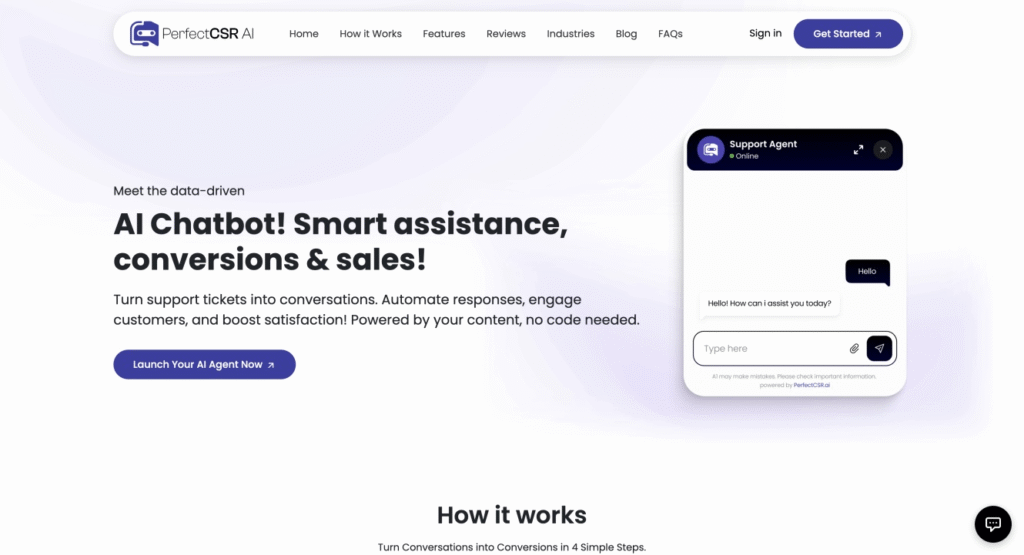
Among the chatbots available, PerfectCSR offers a compelling mix of technical understanding, sales facilitation, and support automation especially suitable for development service companies.
- Core strengths: It emphasizes context-aware responses, natural language understanding beyond basic intents, and empathy-driven support. PerfectCSR can be trained on company documentation, spec sheets, code snippets, previous support tickets, so responses feel tailored and knowledgeable. It also supports workflows for upselling or recommending services (e.g. suggesting additional modules or consulting hours when discussing scope).
- Why it works for development services: For dev firms, support/sales overlap is frequent. Clients ask both technical and commercial questions. PerfectCSR bridges that gap: it can field technical queries (e.g. “How long for integration test?”, “What is your CI/CD pipeline?”) while also guiding through pricing, service tiers. Plus its ability to integrate with internal tools (e.g. knowledge bases, version control systems) means less human overhead, faster response, and a more consistent brand voice.
What to Consider When Choosing a Chatbot for Development Service Firms
When comparing these options, development services companies should evaluate based on:
- Customizability & Control – How much can the company tweak the bot (intents, entities, context, custom actions)? Open-source or platforms with scripting/SDKs tend to score higher.
- Integration Capability – Can the bot integrate with internal tools like GitHub, Jira, Slack, ticketing systems, CI/CD dashboards, knowledge bases, etc.?
- Maintenance & Training – The bot must improve over time: retrain on feedback, fix misunderstandings, update documentation. Look for platforms with good analytics and version control.
- Security & Data Compliance – Dev firms often deal with sensitive or client-proprietary information. Self-hosting, data control, encrypted communication, role-based access control are important.
- Multilingual Support & Domain Adaptation – If serving clients across regions or with technical languages, the bot should support domain-specific vocabulary and multiple languages.
The Bottom Line for Tech Companies
For development service companies, an AI chatbot isn’t just a customer support tool, it’s a strategic asset that can streamline technical communications, improve client satisfaction, and win more business.
Solutions like Rasa, Dialogflow CX, Botpress, and custom builders such as BotsCrew or Yellow.ai are excellent, depending on the company’s priority: speed, control, cost, or technical depth.
And among them, PerfectCSR stands out by offering the best of all worlds: strong technical understanding, conversational depth, sales or support blending, and ease of integration. Companies that invest in the right AI chatbot now will not only reduce support overheads but will also strengthen their competitive advantage in a tech service market that rewards expertise and responsiveness.
FAQs
How do AI chatbots benefit development service companies?
AI chatbots streamline client communication, handle repetitive queries, qualify leads, and provide 24/7 support, freeing human teams to focus on high-value development tasks.
Which AI chatbot is best for handling technical queries?
Platforms like Rasa and Dialogflow CX are strong for technical depth, while PerfectCSR stands out for combining technical understanding with empathy-driven client interactions.
Can AI chatbots improve client satisfaction in service companies?
Yes. By offering instant responses, personalized recommendations, and seamless escalation to human agents, AI chatbots significantly enhance client trust and satisfaction.
Are AI chatbots easy to integrate with existing development workflows?
Most AI chatbots, including PerfectCSR, integrate smoothly with CRMs, project management tools, and support systems, ensuring minimal disruption to workflows.
Do AI chatbots help with business growth?
Absolutely. By reducing support costs, capturing more leads, and improving client experience, AI chatbots act as strategic assets that drive growth and competitive advantage.

